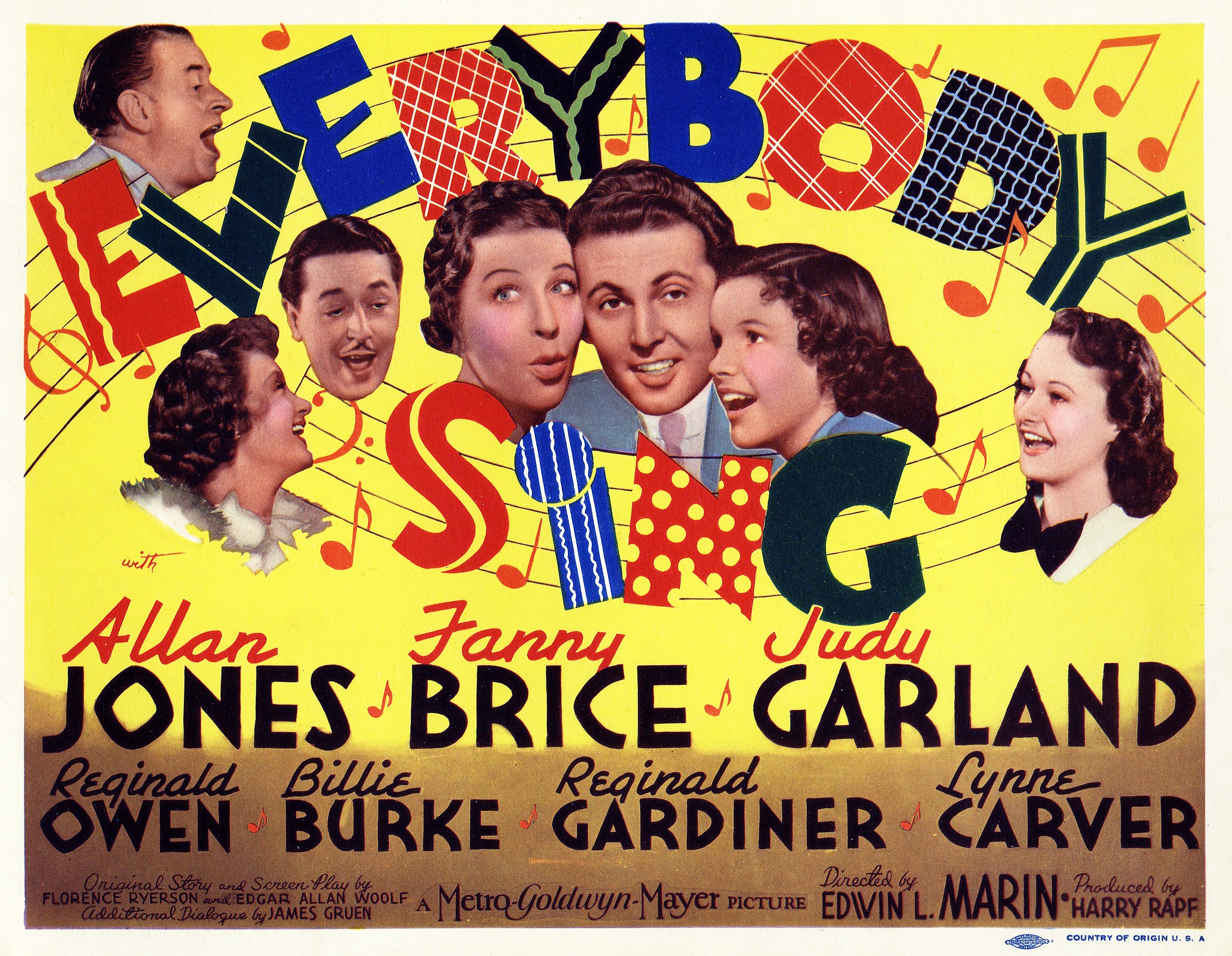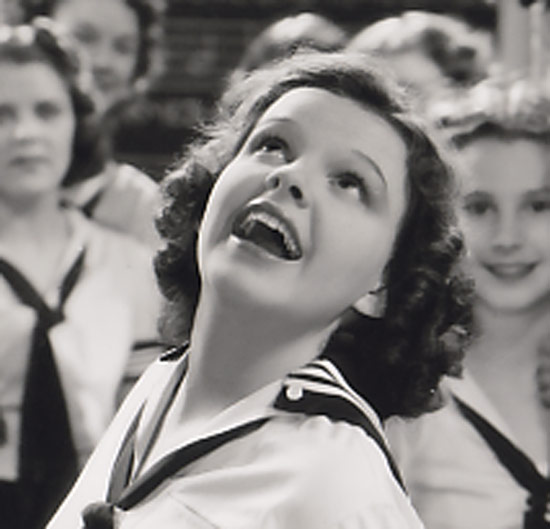It is 1938 and Judy Garland is billed third
in this mid-level musical from MGM. Within a year she was to be a huge star
with one of the most popular songs ever to her credit. Though billed third,
as you watch the film it is clear who is the real intended star of the film.
This was made for her, to test her for audiences. Every time she sings the
film comes to a halt and you enter a different level of quality. Though only
sixteen years old, she already had a maturity to her singing voice that was
way beyond her years. MGM knew they had a star on their hands. They had decided
to let their other teenage singing prodigy Deanna Durbin go to focus on Garland
and were introducing her slowly to the audience with their PR machine taking
Frances Ethel Gumm and turning her into Judy Garland.
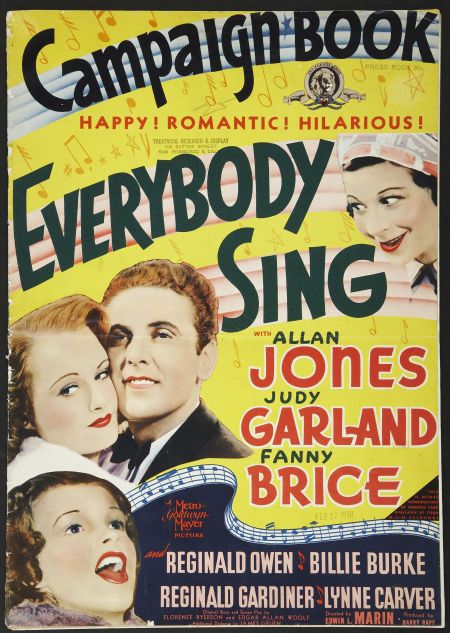
She was going through the MGM machine taking classes in acting, dancing,
singing, poise as well as regular school subjects. The head of MGM Louis
B Mayer was concerned about her weight which is visible in this film and
we all know how that went. She had had a few small parts before this film
and after it they put her in the enormously popular Andy Hardy series in
Love Finds Andy Hardy in which she sings and a film Listen, Darling in which
she co-starred with another MGM teenage star, Freddie Bartholomew. By then
MGM thought she was ready to play a young Kansas farm girl transported to
a magical land. Her life was never the same.
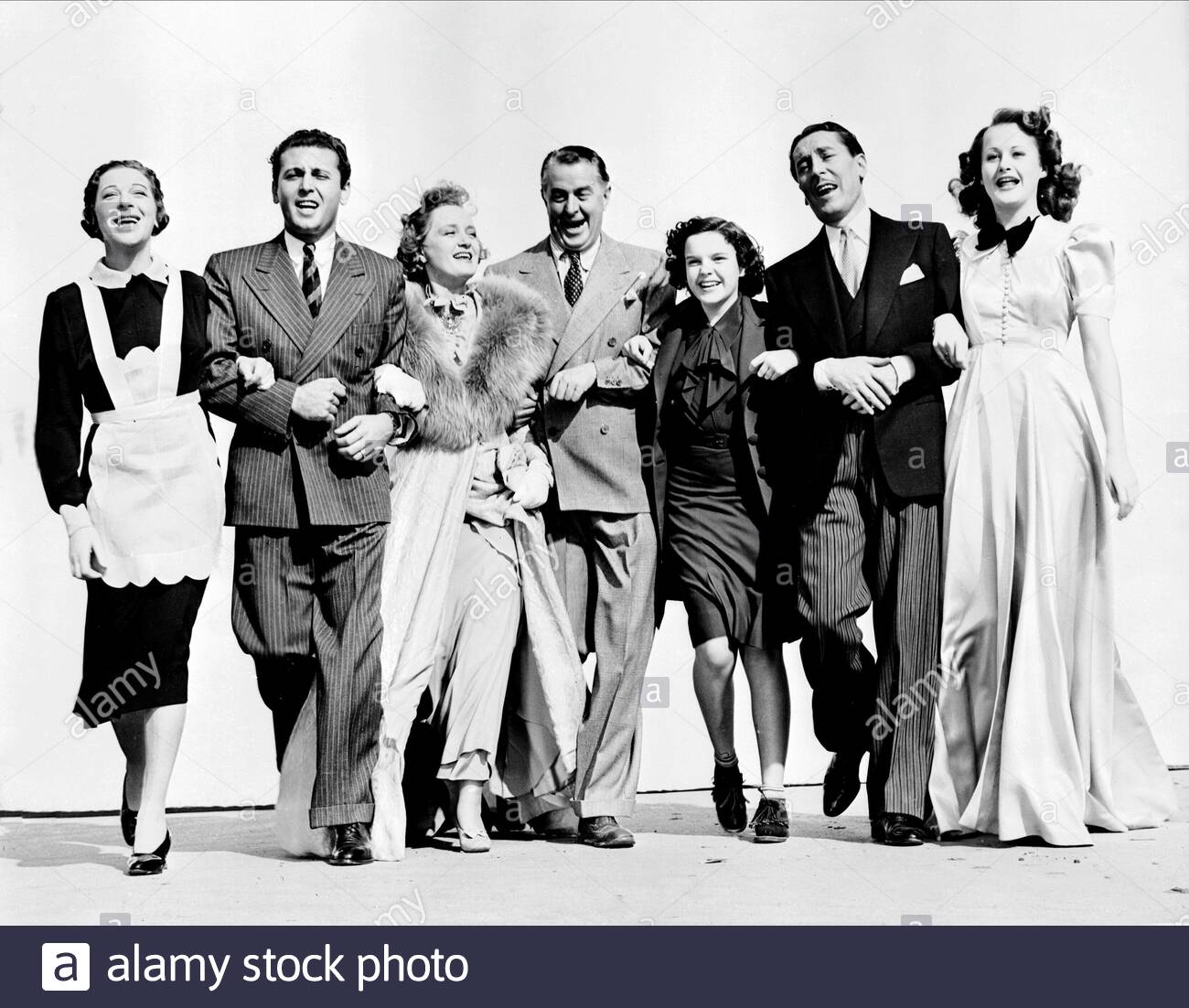
Garland is billed behind Allan Jones, who at the time was a popular male
singer but in an operatic inflected style that today sounds very old fashioned
- but at the time not so much as Durbin and Jeanette MacDonald shared the
same style and were both huge musical stars. Jones is as bland as bread and
barely registers. Not so much the second person billed in the film - the
legendary Fanny Brice who is still basically known today because of Streisand's
version of her life in Funny Girl. She was a famous comedienne and singer
on the stage for decades. I am not so sure she translates so well to film
as her characterization of a Russian maid is very broad and in your face.
She gets to sing one song which is so-so - too bad they didn't let her sing
My Man or Second-Hand Rose for which she was famous.
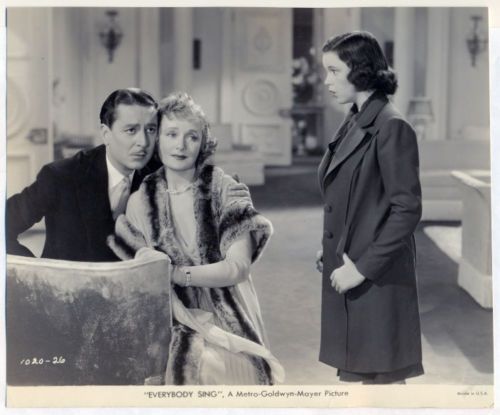
The plot is simple enough - Judy (her name in the film as well) gets kicked
out of school again because she can't help singing and corrupting her friends
with that evil thing called . . . jazz. She goes home and it is clear this
is one of those Depression comedies that takes place in a nutty wealthy family
with a house the size of Rhode Island - and two servants who are like family.
Ricky (Jones) the cook with asperations to be a singer (and to marry the
older daughter, Lynne Carver) and Olga (Brice), the fast talking eye rolling
maid who puts her nose in everyone's life. The father is an exasperated playwright
who has hissy fits, the mother (Billie Burke - soon to play Glinda the good
fairy) is a scatterbrained actress in his plays and Reginald Gardner is terrific
as her co-star in the film. When their backer (Monty Wooley in his usual
whiskers and who wears irascibility like a suit) drops out, it looks like
the family will go broke. But this is America. You don't go broke. You put
on a show and that is what Judy, the cook and the maid do.
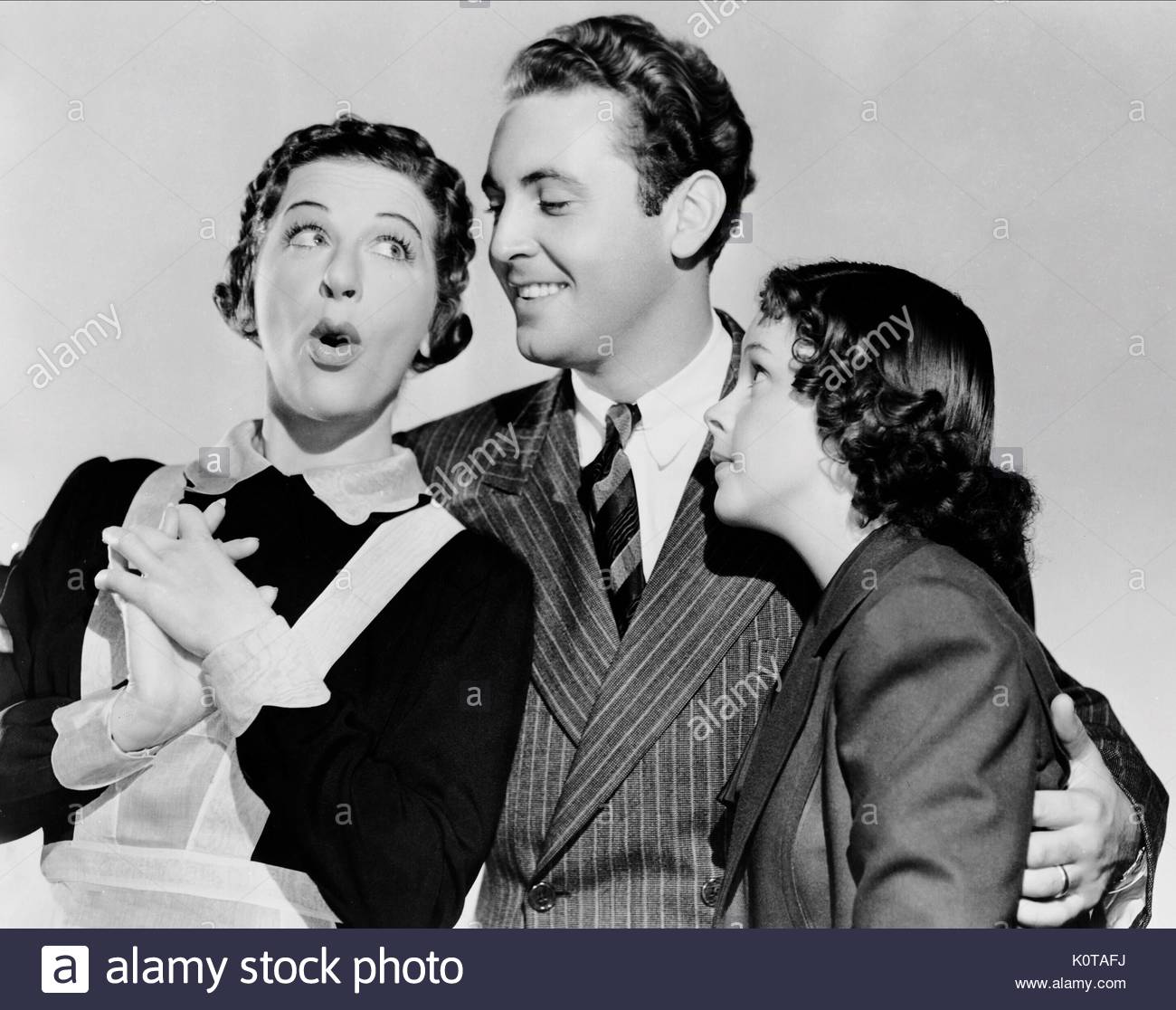
The music itself is rather disappointing - no great songs that you will remember
the next day - and the big finale with a cast of dozens falls flat. One ensemble
number on a bus is good fun, every time Jones sings you go into a coma -
but Garland has a few numbers to herself - not terrific songs but there is
so much talent there waiting to break out. Ah, lest I forget - Judy has a
blackface singing number that is cringeworthy.
